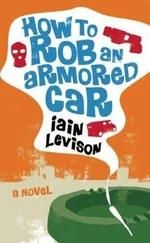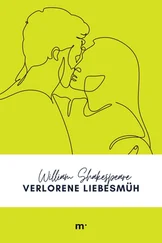Bragi Ólafsson - Pets
Здесь есть возможность читать онлайн «Bragi Ólafsson - Pets» весь текст электронной книги совершенно бесплатно (целиком полную версию без сокращений). В некоторых случаях можно слушать аудио, скачать через торрент в формате fb2 и присутствует краткое содержание. Год выпуска: 2008, Издательство: Open Letter, Жанр: Современная проза, на английском языке. Описание произведения, (предисловие) а так же отзывы посетителей доступны на портале библиотеки ЛибКат.
- Название:Pets
- Автор:
- Издательство:Open Letter
- Жанр:
- Год:2008
- ISBN:нет данных
- Рейтинг книги:5 / 5. Голосов: 1
-
Избранное:Добавить в избранное
- Отзывы:
-
Ваша оценка:
- 100
- 1
- 2
- 3
- 4
- 5
Pets: краткое содержание, описание и аннотация
Предлагаем к чтению аннотацию, описание, краткое содержание или предисловие (зависит от того, что написал сам автор книги «Pets»). Если вы не нашли необходимую информацию о книге — напишите в комментариях, мы постараемся отыскать её.
Pets — читать онлайн бесплатно полную книгу (весь текст) целиком
Ниже представлен текст книги, разбитый по страницам. Система сохранения места последней прочитанной страницы, позволяет с удобством читать онлайн бесплатно книгу «Pets», без необходимости каждый раз заново искать на чём Вы остановились. Поставьте закладку, и сможете в любой момент перейти на страницу, на которой закончили чтение.
Интервал:
Закладка:
“Listen, I’m going to phone Emil’s mother,” Saebjorn says, almost as if he is answering me.
“So, was Emil buying you some CDs?” Havard asks. “He’s a good guy, Emil. Quite solid.”
Thanks Havard. It sounds like Saebjorn is standing up; he says he is going to check on her, meaning my mother most probably. He asks where the phone is and Greta finds it for him.
“What did he bring you this time?” Havard continues and interrupts Jaime who is about to answer. “Just now Armann and I were playing. . what was it again, Armann? What were we playing just now, Armann, that classical CD?”
Saebjorn has come into the bedroom. He sits down in the middle of the bed, which sags under the weight of his long body without making the springs poke down into me, and he begins to turn over the pages of a book, which I immediately recognize as the telephone directory — the pages sound so thin. Then he mutters my father’s name as he turns the pages over, one after another, and just as I’m about to tap on his heel, Armann appears in the doorway. He makes a rather strange surprised sound, excuses himself and says he meant to go to the bathroom. He has clearly had too much to drink.
“Armann! What’s the name of the music we were playing just now, the classical disc?” Havard shouts from the living room.
“The classical disc?” Armann shouts back. “What are you talking about, my friend?”
Saebjorn stands up as soon as he has dialed the number and walks over to the bookshelf on the right of the bedroom window.
“We were playing some music just now that you said was chamber music,” Havard shouts.
“Yes, Mahler. We were playing Mahler. Mahler’s piano quartet,” Armann says. Just as before, he sees no reason to shut the door while he urinates.
“That’s what we were listening to,” I hear Havard say to Jaime, “Mahler’s piano quartet. Actual chamber music, the real thing. One hundred percent proof.” Then he shouts: “Do you hear that, Armann? One hundred percent chamber music!”
Armann starts laughing and repeats Havard’s last words. There is clearly some comradeship that connects them at this moment.
“You are a great chamber fan, aren’t you Armann?” Havard carries on in the same loud voice.
Who else, apart from these two, would shout from one room to another about chamber music, I ask myself.
“Chamber fan?” Armann begins to pee into the toilet bowl, and considering the state he is in at the moment, I can’t imagine that he will be more successful now than on the previous occasion. “You are fine fellows,” he says in a low voice that can hardly be heard in the living room over the noise he is making.
“Hello?” Saebjorn has contacted one of my parents, who turns out to be my mother. “Yes, good evening. My name is Saebjorn, I’m a friend of Emil’s. I am just checking to see if Emil is by any chance with you. He hasn’t come? He hasn’t called either? Yes, I’m at his place, there are two of us here, his friends. He was going to meet us here this evening after he arrived. What? Yes, there’s also an old friend of his here, Havard. He spoke to you? Yes, he came here earlier today, as far as I know, and saw through the window that Emil was boiling water here so he. . yes, no, he wasn’t at home. . so he climbed in through the window and took the water off the burner. That he forgot it? You mean that Emil should forget it? Yes, it is rather strange. He had unpacked his suitcases. It looked as if he had just nipped out.”
Saebjorn listens to my mother for one or two minutes and nods in agreement with what she says. Something suddenly falls on to the floor, probably a book from the shelf, and Saebjorn carries on listening while he bends down to pick up the fallen object. “Yes, I think we will have to,” he says finally, and I hear that the conversation is drawing to a close.
Armann flushes the toilet and goes back into the party without washing his hands. I’m about to try and make contact with Saebjorn before he leaves the room — I am even considering whispering to him — but he suddenly turns away from the bookshelf and rushes out. He is still talking to my mother. He tells her that there are two other people here, a young woman and a slightly older man who was with me on the plane. They are fine, just some people whom I seem to have invited home. Then he goes into the bathroom and asks my mother if I could have gone to visit Vigdis. It’s not very probable but there must be some reason for me taking so long. It doesn’t seem that he and my mother come to any conclusion. As soon as Saebjorn has said goodbye to her, he turns on the tap — probably to have a drink of water — and then goes back into the living room.
The piano quartet has started again, and as far as I can hear Armann is lecturing the other visitors on the music.
“Yes, wasn’t it seventy-six?” I hear Saebjorn say. It sounds as though he had some doubt about the year and has now received confirmation that it was right.
“That must make all the difference,” Havard says scornfully.
“Eighteen hundred seventy-six,” Armann confirms.
I think of my son Halldor. Now he is lying in his bed in Amager, fast asleep in his Danish bed with his twin teddies by his head, completely ignorant of the fact that his father is lying awake under his own bed on Grettisgata and doesn’t dare to come out because he has this dread of something that is impossible to explain.
Why don’t you just go and say hello to your friends, daddy?
What are you doing there under the bed?
I’m just resting, Halldor. Just go back to sleep. No, I know it’s not the most comfortable place. One mustn’t always think of what is most comfortable.
“He was only sixteen,” is yet another piece of information that Armann gives the others.
“And how old are you?” Havard asks. He’s totally uninterested in Armann’s precise age, but he’s very eager to confirm his suspicion that once one reaches thirty everything starts going downhill.
They all seem the same age to me at this moment.
6
I feel as though almost a whole day has passed since I sat beside Armann in the plane. And yet it is only three or four hours since I came home, the same length of time it takes to play four CDs of average length. I’m getting a bit tired of the limited view I have, but by lifting the sheet about ten or twenty centimeters off the floor on my left I can see out of the bedroom window. The curtains are only half closed. Although the lampposts and the windows of the houses on the main street cast a little light, the darkness outside seems to be thick and viscous. I don’t know why — perhaps hunger is bothering me — but when I look out into the darkness, I think of the black bean soup that I once ordered by mistake in a Brazilian restaurant in New York a few years ago. I was with Anna and her parents. They had invited us for a weekend trip two weeks after we had told them that we were expecting a child. That trip turned out to be an absolute disaster. Not because my in-laws were difficult in any way, I always got on well with them, but at that time Anna and I didn’t have a penny to our name, and despite the fact that she was pregnant, or maybe exactly because she was, we didn’t get on very well; we fought over every little detail. Just before we set out we had to hand over our Visa card into the demanding hands of the bank, and I felt awful — just like Anna did, not being able to buy herself clothes — flicking through the CDs in Tower Records without being able to buy even a couple of them. Or almost. I managed to hoard a few dollars and brought home one CD that I bought without telling Anna; it was a disc that I literally had to own and would never have forgiven myself for not bringing home, considering I had managed to find it in the first place. Today I brought home thirty-six discs, more than the years that I have lived. And probably more than the years I have left to live.
Читать дальшеИнтервал:
Закладка:
Похожие книги на «Pets»
Представляем Вашему вниманию похожие книги на «Pets» списком для выбора. Мы отобрали схожую по названию и смыслу литературу в надежде предоставить читателям больше вариантов отыскать новые, интересные, ещё непрочитанные произведения.
Обсуждение, отзывы о книге «Pets» и просто собственные мнения читателей. Оставьте ваши комментарии, напишите, что Вы думаете о произведении, его смысле или главных героях. Укажите что конкретно понравилось, а что нет, и почему Вы так считаете.











